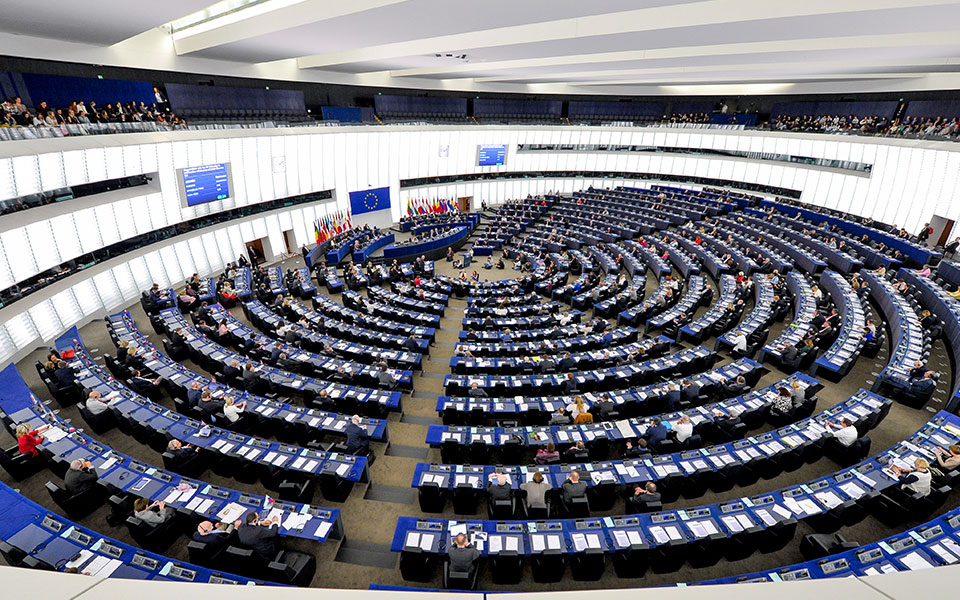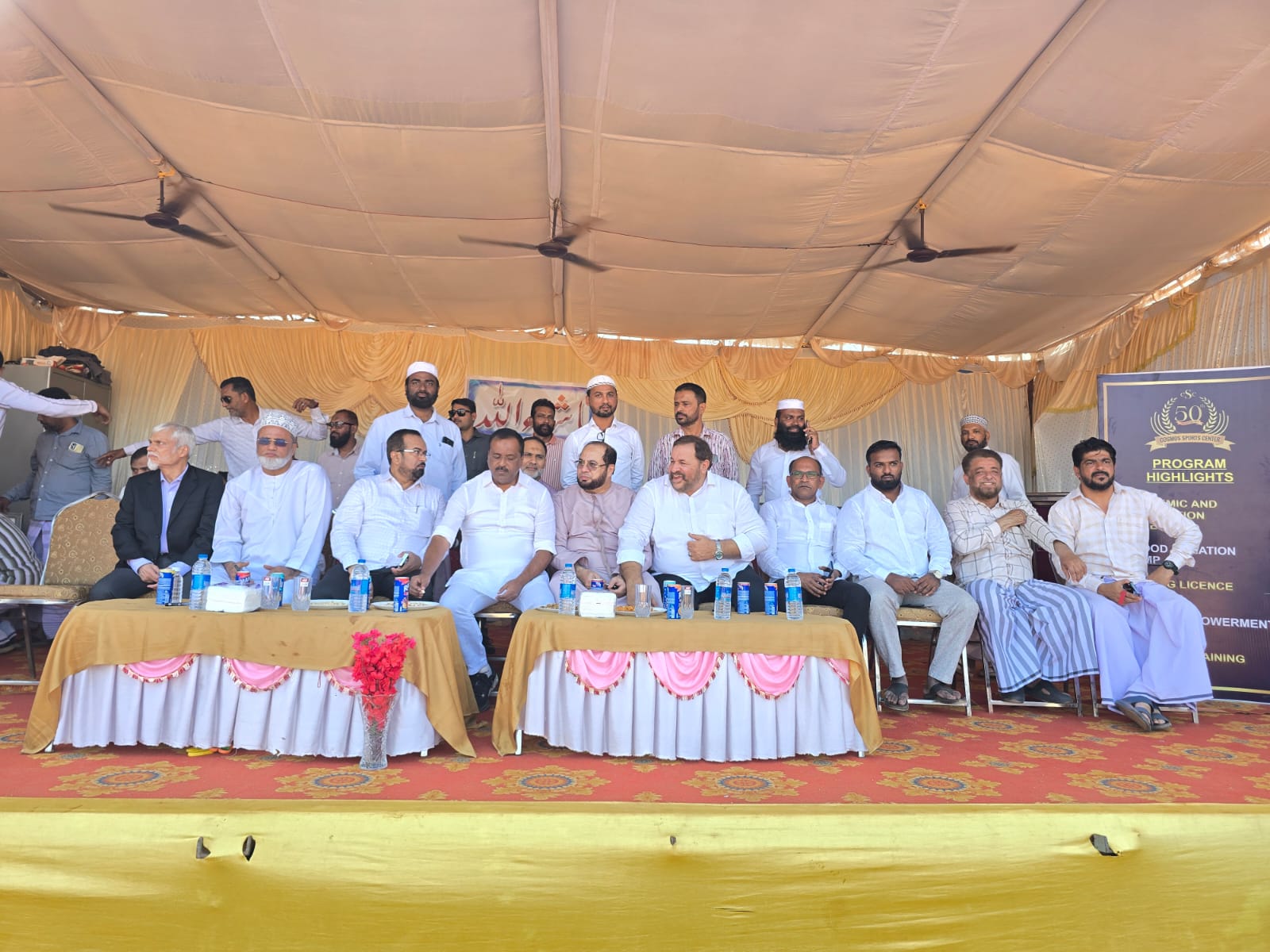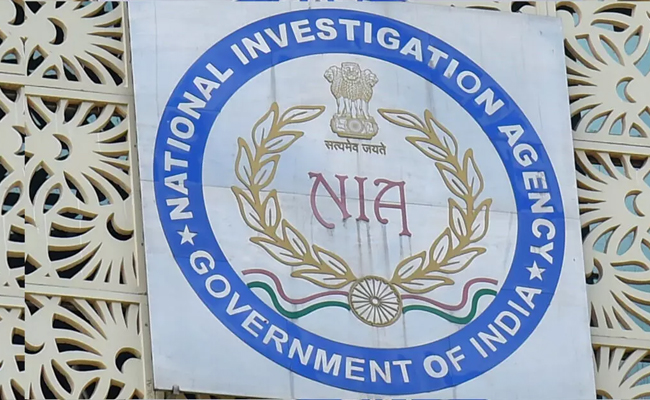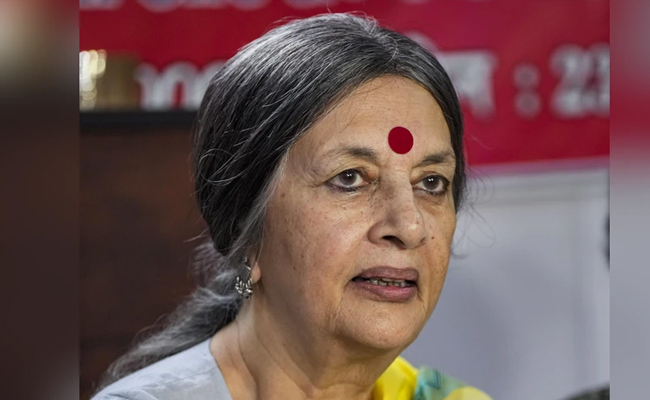Dharamsala, May 9: Members of the European Parliament have favoured genuine autonomy for the people of Tibet and restarting a dialogue between the Dalai Lama's envoys and the Chinese government, the Central Tibetan Administration (CTA) said on Wednesday.
A three-member European parliamentary delegation consisting of Thomas Mann, Csaba Sogor and Ramon Tremosa visited the Tibetan parliament-in-exile on Tuesday.
"I don't know if we are one of the strongest supporters but we do meet regularly. Every month we have the opportunity to have visits by experts and people who had suffered and had been imprisoned in Tibet," a CTA post quoting Mann, chair of the Tibet Interest Group in the European Parliament, said.
Expressing support for the cause of Tibetans, he said the promulgation of human rights is most important for them and they always strive to include human rights of the suppressed on their agendas every time in the European Union.
"We support for the genuine autonomy -- 'middle-way approach' as adopted by the Central Tibetan Administration and emphasized on the necessity of resuming the stalled dialogue between the envoys of His Holiness the Dalai Lama and the government of China," he said.
The Dalai Lama's envoys and the Chinese have held nine rounds of talks since 2002 to resolve the Tibetan issue but no major breakthrough has been achieved so far.
The last talks were held in Beijing in January 2010.
Mann also stressed on the importance of the environment of Tibet, stating it to be the major source of rivers for most of the South-Asian countries.
Sogor, also a member of the Tibet Interest Group, stressed the significance of equipping the younger Tibetans with experiences in the diplomatic field by creating a conducive environment for them to work as trainees and interns at various parliamentary secretariats and offices.
Another European Parliamentarian, Tremosa, reiterating the parallels between the struggling movement of the Tibetans in exile and the Catalan people, said "it is interesting to see and learn how the Tibetan administration functions and how the struggle movement of peaceful resistance operates in exile".
The Tibetan administration in exile, led by its President Lobsang Sangay, is based in the north Indian hill town of Dharamsala in Himachal Pradesh.
Let the Truth be known. If you read VB and like VB, please be a VB Supporter and Help us deliver the Truth to one and all.
Mumbai (PTI): In view of Argentine superstar footballer Lionel Messi's visit to Mumbai on Sunday, the city police are implementing stringent security measures, like not allowing water bottles, metals, coins inside the stadiums and setting up watchtowers to keep an eye on the crowd, officials said.
The police also said taking extra care to avoid any stampede-like situation and to prevent recurrence of the chaotic situation that unfolded in Kolkata during Messi's visit on Saturday as thousands of fans protested inside the Salt Lake stadium here after failing to catch a clear glimpse of the football icon despite paying hefty sums for tickets.
Messi is expected to be present at the Cricket Club of India (Brabourne Stadium) in Mumbai on Sunday for a Padel GOAT Cup event followed by attending a celebrity football match. He is expected to proceed to the Wankhede Stadium for the GOAT India Tour main event around 5 pm.
"In view of Lionel Messi's visit to Mumbai, the police are geared up and have put in place a high level of security arrangements in and around the stadiums located in south Mumbai. Considering the chaos that prevailed in Kolkata and the security breach, we have deployed World Cup-level security arrangements at Brabourne and Wankhede stadiums," an official said.
Expecting heavy crowd near the stadiums during Messi's visit, the city police force has deployed more than 2,000 of its personnel near and around both the venues, he said.
As the Mumbai police have the experience of security 'bandobast' during the victory parade of ICC World Cup-winning Indian team and World Cup final match at the Wankhede Stadium, in which over one lakh cricket fans had gathered, we are prepared to handle a large crowd of fans, he said.
"We are trying to avoid the errors that occurred in the past," the official said.
There is no place to sneak inside the stadiums in Mumbai like the Kolkata stadium, according to him.
The police are also asking the organisers to provide all the required facilities to the fans inside the stadium, so that there will be no chaos, he said, adding the spectators have purchased tickets in the range of Rs 5,000 to 25,000. After paying so much of amount, any spectator expects proper services, while enjoying the event, he said.
The police are expecting 33,000 spectators at the Wankhede Stadium and over 4,000 at Brabourne Stadium. Besides this, more than 30,000 people are expected outside and around the stadiums just to have a glimpse of the football sensation, he said.
The organisers responsible for Messi's India visit recently came to Mumbai to discuss security arrangements. During the meeting, the Mumbai police asked them not to take the event lightly, according to the official.
After those requirements were fulfilled, the final security deployment was chalked out, he said.
Police has the standard procedure of the security arrangements inside the Wankhede Stadium, where people are barred from taking water bottles, metals objects, coins. Police are setting up watch towers near the stadiums and there will be traffic diversions, so that there is maximum space available to stand, according to the official.
Police are also appealing to the spectators to use public transport service for commuting and avoid personal vehicles to reach south Mumbai.
To avoid any stampede-like situation, police are also taking precautionary measures and will stop the fans some distance ahead of the stadium and public announcement systems will be used to guide the crowd. Barricades will be placed at various places to manage the crowd.
In case the crowd swells up beyond expectation, the police will divert people to other grounds and preparations in this regard underway, he said.
Additional police force has been deployed in south Mumbai to tackle any kind of situation, he said.





